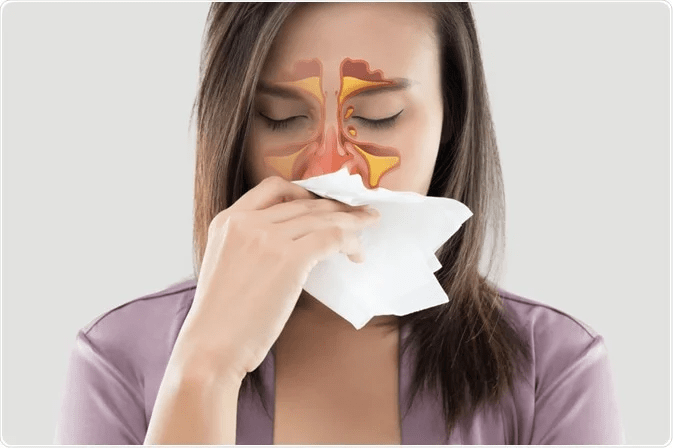
Allergic rhinitis, commonly referred to as hay fever, occurs when our body's immune system reacts excessively to allergens such as dust mites, smoke, pollen, mold, and other substances. While these allergens are generally harmless, our immune system overreacts by releasing a chemical called histamine, which is intended to protect us from these allergens.
Homeopathy treats Allergic Rhinitis effectively, addressing symptoms, boosting immunity, and preventing recurrence. Wellness Homeo Clinic has successfully treated patients, improving their well-being with natural, side-effect-free remedies tailored to individual symptoms and health history.
Homeopathy treats Rhinitis safely, without side effects, for all ages. Wellness Homeo Clinic offers personalized Constitutional Homeopathy Treatment based on symptoms and severity. Homeocare International's Constitutional Homeopathy not only alleviates symptoms but also strengthens the immune system, providing long-term relief.
Allergic rhinitis can significantly impact a person's quality of life, as it can interfere with sleep, work, and daily activities. It is often associated with other allergic conditions, such as asthma, eczema, and food allergies.
Allergic rhinitis, commonly known as hay fever, is a condition characterized by inflammation of the nasal passages due to an allergic reaction. It is triggered by various allergens present in the environment. While each individual's sensitivity to specific allergens may vary, there are several common causes for allergic rhinitis.
Allergic rhinitis, also known as hay fever, is a condition characterized by inflammation and swelling of the nasal passages. It occurs when the immune system reacts excessively to allergens present in the air. Individuals with allergies can be sensitive to a wide range of substances, including weeds, grass, mold, pollen, dust, mites, cockroaches, pet dander, and various other allergens. When a sensitive person comes into contact with these substances, it can trigger an allergic response in their body, leading to symptoms of allergic rhinitis.
Allergic rhinitis, commonly known as hay fever, is a condition characterized by nasal allergies triggered by inhaled allergens. While the term "hay fever" is often associated with seasonal allergies caused by pollen, such as ragweed, it can also encompass allergic reactions to any airborne allergen.
Allergic rhinitis, also known as hay fever, is a condition that occurs when your immune system reacts to allergens that you breathe in. It is important to understand that allergic rhinitis is not caused by viruses or bacteria, and it is not contagious. The symptoms and discomfort associated with allergic rhinitis are a result of your body's immune response to specific substances, such as pollen, dust mites, pet dander, or mold spores.
Allergic rhinitis, also known as hay fever, shares several symptoms with a typical cold. Some commonly experienced symptoms include sneezing, nasal congestion, coughing, sinus pressure, itchy and watery eyes, itching in the nose, mouth, and throat, as well as fatigue.
Allergic rhinitis and non-allergic rhinitis differ primarily in their causes. Allergic rhinitis is triggered by allergens, while non-allergic rhinitis is caused by pathogens.